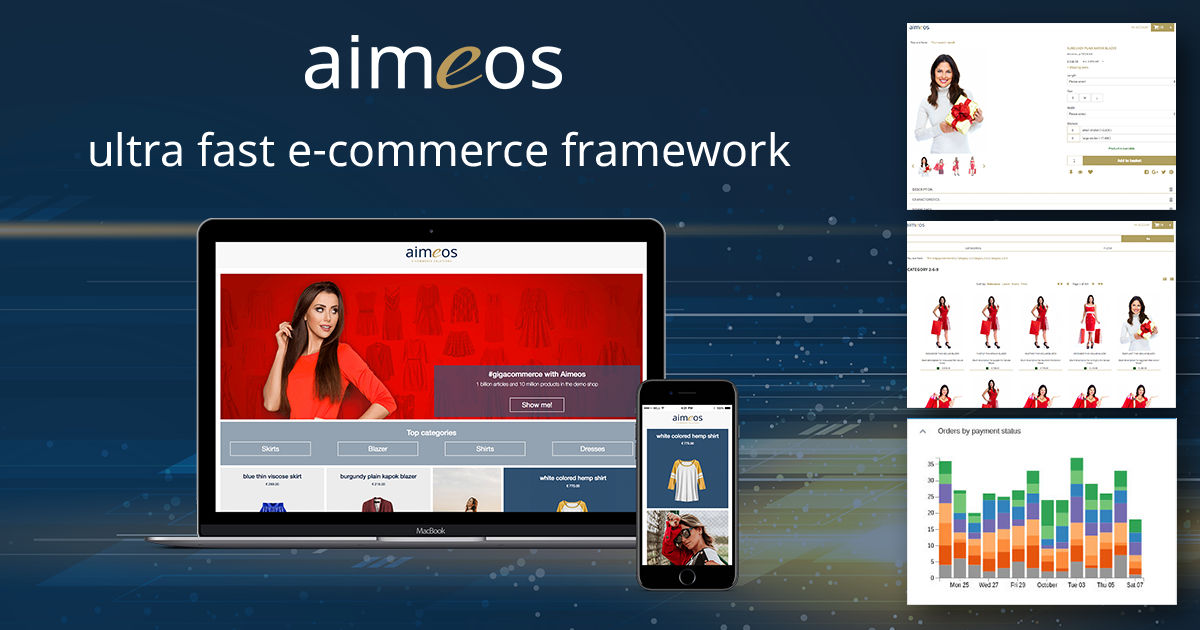Aimeos 2020.10 LTS release

The latest 2020.10 long-term support release of Aimeos includes numerous refinements and highly demanded capabilities. However, one of the most critical improvements relates to the documentation, which has been significantly enhanced! In terms of features, the most relevant additions are:
A comprehensive product rating and review system including JSON API
Home page component
Price facet filter
Date/time range filter in admin backend
Simplified getter in context
Enhanced log entries for SQL statements
Official Laravel 8 support
Full AWS support
New documentation
As you may have noticed, the old documentation Wiki has been retired and a well organized Aimeos documentation now welcomes developers and users.
Thanks to the clear structure, finding the documentation you need should be much easier. If not, you can utilize the Algolia powered full text search at the top to rapidly locate matching articles. Tip: Using more words results in more accurate search results.
The documentation utilizes the Markdown syntax most developers are already familiar with. Anyone can contribute to the new documentation repository and is encouraged to do so to further improve the documentation.
Reviews and ratings
Aimeos moves closer to feature completeness by providing a first-class product rating and review system in the new version. This was one of the last major missing capabilities but not anymore!
Its design and features are similar to Amazon's review system including vendor responses but with a much nicer layout that also scales extremely well for very large sites.
The implementation consists of a new, separate data domain for reviews and ratings. The ratings are automatically updated when new ones are added and approved. It includes a frontend controller, HTML clients and JSON REST API endpoints for managing the reviews.
New HTML components
For the HTML frontend, the new "catalog home" component is available, which creates an appealing home page by displaying category information from the root and top level categories as well as the promotional products assigned to them.
The output consists of the stage image from the "home" category (if present) and the stage images from its direct sub-categories including their short descriptions. If either the image or description is missing, the available content utilizes the available space so the layout adapts flexibly to your content.
Also, the catalog filter component now contains a new price filter:
It allows users to limit products by price using a native HTML5 slider element connected to the input field for the upper price value. Users can also enforce a minimum price if desired. The upper price is automatically calculated from the product selection limited by already applied categories or filter facets.
Admin backend enhancements
Thanks to the flatpickr Vue.js component and range expression support in the Aimeos core, you can now filter items in list views by date ranges. This applies to all date or date/time columns in all list panels and is extremely useful in the order panel to display all orders of e.g. the last month and export them afterwards.
Also, the detail views utilize the new component for all date/time fields. There, you can not only select a date but also the time, e.g. for start and end dates. Thus, Safari browsers now have a convenient date/time selection method, as Safari is the only major browser lacking native date/time input fields.
Developer improvements
For developers, the new release offers shorter methods for accessing data in the "Context" dependency container, continuing the introduction of short manager methods in the previous version. For example, you can now write:
getDatabaseManager() => db()
getFileSystem( 'name' ) => fs( 'name' )
Additionally, the debug log entries are no longer JSON-encoded, so you can copy e.g. logged SQL statements directly from the log panel in the admin interface and paste them into any database client without needing to remove the JSON characters.
Laravel and AWS
Aimeos supports the new Laravel 8 release from day one and 2020.10 is the first Aimeos LTS version fully compatible with this major Laravel version. The Aimeos Laravel package now supports Laravel 6, 7 and 8.
Lastly, deploying Aimeos on AWS using MySQL works seamlessly now by passing additional MySQL configuration down to the PDO driver. Specifically, MySQL on AWS requires a certificate configuration that is now supported by custom driver options.
Leave a comment
Your email address will not be published. Required fields are marked with *